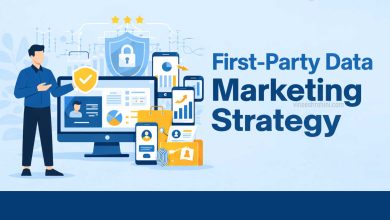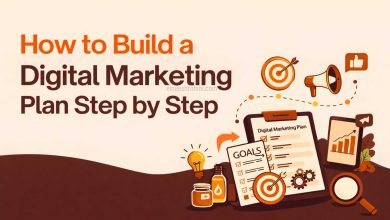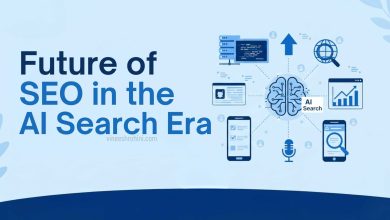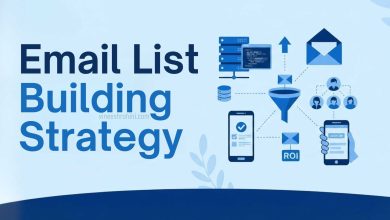How AI is Riding The Next Level Of Marketing : Will AI Replace Human Jobs?
What is AI Anyways
AI, or Artificial Intelligence, is a field of computer science that focuses on creating intelligent machines that can perform tasks that typically require human intelligence, such as visual perception, speech recognition, decision-making, and language translation.
AI involves designing algorithms and models that can analyze large amounts of data, learn from that data, and make predictions or decisions based on that learning. This is done through a combination of techniques such as machine learning, natural language processing, and deep learning.
Machine learning is a technique in which computers learn from data without being explicitly programmed. This involves training algorithms on large datasets to recognize patterns and make predictions based on those patterns. For example, a machine learning algorithm could be trained to recognize images of cats by analyzing a large dataset of cat images.
Will AI Replace Human Creativity?
AI has the potential to assist and enhance human creativity, but it is unlikely to replace it entirely. While AI can create outputs that mimic human creativity, it lacks the underlying emotional and cognitive processes that drive human creativity. Here are some reasons why AI is unlikely to replace human creativity:
- AI lacks consciousness and intuition: Human creativity is often driven by intuition and consciousness, which is something that machines cannot replicate. AI is based on algorithms that analyze data and make predictions, but they do not have consciousness or intuition.
- AI is limited by data: AI systems can only learn from the data they are trained on, which means they are limited by the quality and quantity of the data. Human creativity, on the other hand, is not limited by data and can draw from personal experiences, emotions, and imagination.
- AI is designed to optimize for specific goals: AI systems are designed to optimize for specific goals or objectives, such as creating a realistic image or composing music in a particular style. Human creativity, on the other hand, is often driven by exploration and experimentation.
- Human creativity involves social and cultural factors: Creativity is influenced by social and cultural factors, such as individual experiences, education, and environment. AI systems lack the social and cultural context that shapes human creativity.
While AI can generate creative outputs, it is unlikely to replace the creative abilities of humans. Instead, AI has the potential to enhance human creativity by providing new tools and technologies that can assist with creative processes, such as generating ideas, providing feedback, and automating repetitive tasks. Overall, AI and human creativity are likely to coexist and complement each other in the future.
Using AI for Marketing
AI (Artificial Intelligence) can be incredibly useful in marketing, as it has the ability to process large amounts of data and provide valuable insights. Here are some ways that AI can be used in marketing:
- Personalized content: AI can analyze consumer data and behavior to provide personalized content, such as product recommendations, personalized emails, and website content that is tailored to the user’s preferences and interests.
- Predictive analytics: AI can use predictive analytics to forecast consumer behavior, such as identifying which customers are most likely to make a purchase or which products are likely to be popular.
- Chatbots: AI-powered chatbots can provide customer service and support, answering common questions and providing assistance 24/7.
- Ad targeting: AI can analyze customer data to create targeted advertising campaigns, reaching the right audience at the right time with the right message.
- Sentiment analysis: AI can analyze social media and customer feedback to identify sentiment around a brand, product or service. This can help marketers adjust their messaging and strategy accordingly.
Overall, AI can help marketers make more informed decisions by providing valuable insights, automating processes, and improving the customer experience. However, it’s important to use AI ethically and transparently, and to ensure that it is aligned with the company’s values and goals.
Will AI Replace Human Jobs?
The impact of AI on human jobs is a complex issue with many different perspectives. While AI has the potential to automate certain tasks and reduce the need for human labor in certain areas, it also has the potential to create new jobs and enhance the productivity of human workers.
Here are some ways in which AI could impact human jobs:
- Automation: AI can automate repetitive and routine tasks, such as data entry or customer service, which could reduce the need for human labor in those areas.
- Increased efficiency: AI can increase efficiency and productivity by handling large amounts of data and performing complex calculations and analysis, allowing human workers to focus on more strategic tasks.
- New job opportunities: As AI technology advances, new job opportunities may emerge in areas such as machine learning, data science, and robotics.
- Job displacement: Some jobs may become obsolete as AI technology advances and certain tasks become automated.
It’s important to note that while AI has the potential to automate certain tasks and reduce the need for human labor in some areas, it is unlikely to replace humans altogether. Many tasks require human judgment, creativity, and emotional intelligence, which cannot be replicated by AI. Furthermore, the development and implementation of AI requires human expertise and labor.
Overall, the impact of AI on human jobs is complex and multifaceted. While it is important to monitor and manage the impact of AI on the labor market, it is also important to recognize the potential benefits of AI in terms of increased productivity, efficiency, and innovation.



